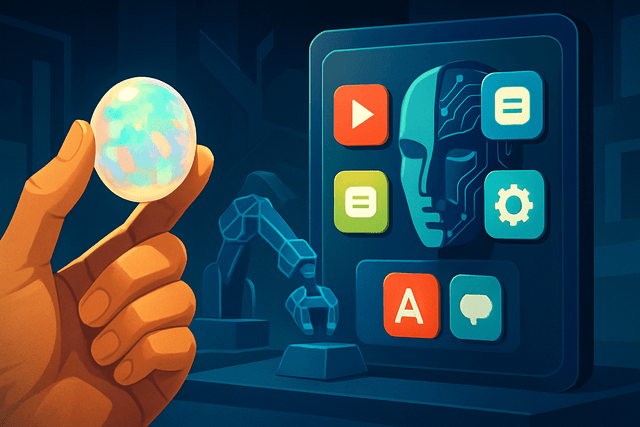Google has entered the rapidly growing 'vibe-coding' space with the launch of Opal, a groundbreaking no-code platform that democratizes AI application development. The experimental tool, announced on July 24 and currently available as a US-only public beta through Google Labs, represents Google's latest effort to make AI technology more accessible to everyone.
Opal's core functionality revolves around a simple yet powerful premise: users describe the app they want to create using natural language, and Google's AI models transform that description into a functional mini-application. The platform generates a visual workflow that chains together prompts, AI models, and tools, giving users fine-grained control without requiring any coding knowledge.
"Opal is a great tool to accelerate prototyping AI ideas and workflows, demonstrate a proof of concept with a functional app, build custom AI apps to boost your productivity at work, and more," stated Google in its official announcement. The tool appears to leverage multiple AI models, potentially including Google's recently introduced Gemini 2.5 Pro for logic operations and other specialized models for generating visual and audio content.
Users can edit their applications through a visual editor, tweaking prompts, adding features, or calling tools either by using the interface or by describing the changes they want to make in natural language. Once an app is ready, it can be shared with others who can access it using their own Google accounts, facilitating easy collaboration and feedback.
Opal enters a competitive landscape of no-code AI tools, challenging offerings from companies like Canva, Figma, Replit, and startups such as Cursor and Lovable. However, it differentiates itself through its hybrid approach of natural language input paired with visual modularity and its integration with Google's robust AI ecosystem.
While Google's AI Studio already caters to developers, Opal targets a broader audience including educators, marketers, small business owners, and creative professionals who want to rapidly prototype ideas or build custom tools without technical expertise. The platform includes a demo gallery with starter templates that can be used as-is or customized, helping users jumpstart their creativity.

